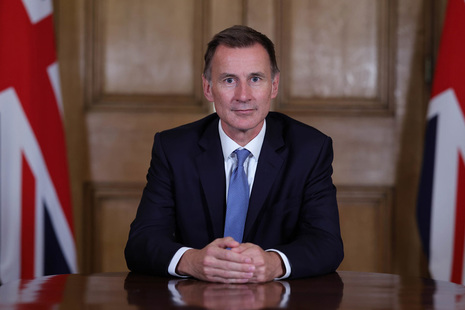
After a much-touted better than expected OBR forecast, Chancellor Jeremy Hunt’s Spring Budget was firmly focused on growth and investment for business. However, the spending allocated for this is somewhat underwhelming when put into context.
Changes to Pensions
The biggest surprise in this otherwise fairly safe budget was the announcement that the Lifetime Allowance on pensions would be abolished. This will limit the amount that people are able to save before incurring tax.
Mr Hunt’s announcements on pensions also included an increase of the Annual Allowance (from £40,000 to £60,000). This will encourage more tax planning, with savers looking to maximise the funds in their pensions.
Something that will be welcome news to a large demographic of voters is that these pension plans are part of a series of measures to keep people in work for longer (as well as attracting people into work). An example being the Chancellor having made mention of incentives for doctors to work longer.
Economy in better shape than expected
The UK economy has contracted somewhat less than previously expected according to the Office for Budget Responsibility (OBR) and has avoided a technical recession (albeit narrowly). This does not, however, guarantee a quick recovery from the issues we currently face.
The OBR report stated that living standards will remain lower by 0.4% in 2028 than prior to the pandemic, which indicates that people in general will remain poorer for up to a decade.
The report also presented that the tax burden will hit a post-war high of 37.7% in the 2027/28 tax year as well as the highest ratio of corporation tax receipts to GDP since the introduction of corporation tax in 1965. Additionally, the public spending to GDP ratio looks to hit 43.3% which represents the highest sustained level since the 1970s.
A pro-growth Budget?
Much of what was announced in the Budget represented the Chancellor’s strategy to get more individuals into work and is part of Jeremy Hunt’s overall plan for growing the economy through business.
Given that the economy has been flatlining somewhat, this appears to be a positive move and could act as a shot in the arm for businesses. His announcements on investment in the expansion of free childcare should be useful in solving the shortages in the workforce.
On the other side of the coin, the reduction in support for businesses where energy costs are concerned will come as a major blow to those companies facing large price hikes from their energy suppliers.
Levelling-up returns
The governments’ level-up mandate returned to focus in the Chancellor’s speech as he announced the formation of 12 new ‘investment zones’ in areas including Greater Manchester, Liverpool, the East and West Midlands and the North East as well as four across Scotland, Wales and Northern Ireland.
These zones will receive access to what Mr Hunt referred to as “interventions” worth £80million over the course of 5 years. These include enhanced rates of Capital Allowance, Structures and Buildings Allowance as well as relief from stamp duty and land tax, employers’ national insurance contributions and business rates.
In addition, business infrastructure, apprenticeships and skill development will be supported through flexible grant funding.
£200million was pledged to fund local regeneration projects and an additional £161million for the regeneration of Mayoral Combined Authorities. Over the next five years there will £8.8billion allocated to a second round of the city region sustainable transport settlements.
Capital allowances
With the super-deduction coming to an end and corporation tax remaining at 25%, the Chancellor announced a three year period of ‘full expensing relief’ which will run until 2026. This will allow for 100% relief on the cost of most items eligible for capital allowance, while a 50% rate applying to special rate assets. This relief will only be available to use on new and unused assets and will only apply to companies. Unincorporated businesses will only be eligible for the £1m annual investment allowance.
Additionally, Jeremy Hunt announced that the 100% first year allowance for expenditure on plant and machinery for electric vehicle will be extended by two years (running until 31st March 2025 for corporation tax purposes and 5th April 2025 for income tax purposes).
R&D for SMEs
The Chancellor announced an increase to R&D relief from 1st April for SMEs. Those eligible will be able to claim 27% of their R&D investment from HMRC if they spend upwards of 40% of their combined expenditure on their R&D.

Creative Industries
From 1st January 2024, there will be reform to tax reliefs for the film, high-end TV and video gaming industries. The tax reliefs in these sectors will become expenditure credits rather than additional deductions.
During the pandemic, the temporary higher rates of theatre tax relief, orchestra tax relief and museums and exhibitions tax relief were introduced. These are to be extended for two additional years.
Energy:

The climate change agreement has been extended for two further years. The Chancellor announced that nuclear power will now be included in the UK’s green tax plans (subject to consultation). This will mean that nuclear energy projects will have access to the same green incentives as renewables have had over the past few years. Mr Hunt’s plan is for 25% of the energy used in the UK to be produced by nuclear energy.
Another strategy to incentivise energy efficiency is the allocation of £20billion which will be made available for carbon capture, utilisation and storage as well as the extension of the Climate Change Agreement.
For households, the energy price-guarantee will continue for three months based on projections that energy prices will fall at this point. For businesses, however, the new Energy Bill Discounts Scheme will replace the Energy Bills Relief Scheme which will take some businesses who were receiving relief out of the range of support.
Childcare and Benefits
From April 2024, eligible working parents will be able to claim 30 hours per week of free childcare for every child between the ages of 9 months and 3 years (based on 38 weeks per year). There will also be funding available to childcare providers to support the expenses related to delivering the current free childcare hours available to parents in England.
Additionally, in order to encourage disabled people into the workplace, Work Capability Assessment for disability benefits have been abolished.
Technology
The Chancellor has accepted the nine recommendations on digital technology made by the technology review which was helmed by Sir Patrick Valance.This will, in theory, accelerate the development of new AI products in the market.
£900m was pledged to build an exascale supercomputer as recommended in the Future of Compute review. This is part of the government’s strategy to be a quantum-enabled economy by 2033 (this research and innovation plan totals at £2.5billion)
Latest Articles
FCA Review Offers Insights on the Consumer Duty in the Payments SectorAvoiding Problems When Switching to New Payroll IDs or Payroll ProvidersNew Calls for a UK Investment Strategy which supports industries with world-class capabilitiesTax Reform and Modernisation: Rachel Reeves’ New Plan for HMRCAnti Money Laundering (AML) Supervision Needs Improvement: OPBAS Report Highlights Key Concerns
